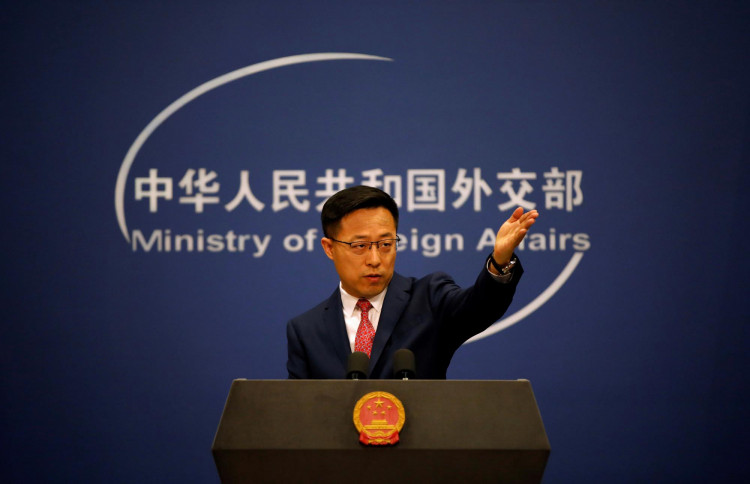The Chinese government has asked four American media companies to provide information on activities in the country, the foreign ministry disclosed on Wednesday as a media dispute escalates between Beijing and Washington.
The United Press International, Associated Press, CBS, and National Public Radio are obligated to submit details about their personnel, financial operations and even properties they own in China within one week in what officials described as retaliation for the latest US policies against Chinese media branches, ministry spokesman Zhao Lijian told a daily press briefing.
According to Zhao, they urge the US to "immediately change course, correct its error, and desist from the political suppression and unreasonable restriction of Chinese media," Yew Lun Tian and Gabriel Crossley of Reuters, reported.
China's actions, Zhao pointed out, are necessary countermeasures against the US' unreasonable oppression of Chinese media outlets in America. On June 22, the State Department reclassified four Chinese government media outlets as foreign missions in the US.
Zhao disclosed that recent US measures have smeared the image and name of Chinese media, affect their operations, and seriously interfere with the normal people-to-people exchanges between the two countries.
The news comes after Washington announced last month that it would start treating the four Chinese state media outlets as foreign consulates, a measure that will limit their operations on US soil.
Top US representative for East Asia, David Stilwell, told media on June 22 that the classification would affect the People's Daily, China Central Television, the China News Service, and Global Times. The State Department had already included on its list five other Chinese media branches as foreign embassies in February.
The tit-for-tat exchange has prompted China to remove 18 reporters from the New York Times, the Wall Street Journal, and Washington Post this year, the Foreign Correspondents Club of China revealed. At the time, Chinese authorities have also asked those media outlets, including Voice of America and Time magazine, to submit in writing information about their China activities.
Beijing and Washington have been at loggerheads in a host of retaliatory actions that involved members of major press organizations in recent months, in the wake of deepening frictions over touchy matters ranging from the ongoing global health crisis to Hong Kong.
United States President Donald Trump on Tuesday said that he was growing angrier at China over the coronavirus pandemic, which he blames on the state's inaction and lack of transparency. In reaction, China accused the Trump administration of politicizing the crisis to divert from its own handling of the pandemic.





